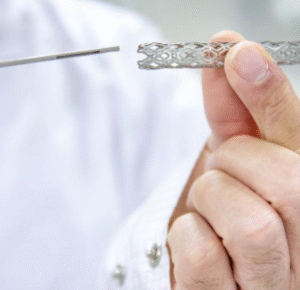Visiting the dentist can be daunting for both kids and parents. It’s important to create a positive experience that makes dental checkups enjoyable for children and stress-free for parents. When kids see dental visits as fun, they are more likely to develop healthy habits. A family dentist in Pleasanton, CA, understands the unique needs of children and their families. They use child-friendly techniques and comfortable environments to ease worries. Parents, too, play a vital role. By preparing children with simple explanations and encouragement, they can help build a sense of trust and security. Establishing routines and rewards can also make a big difference. These steps not only reduce anxiety but also promote lifelong oral health. In the following sections, we’ll explore three key strategies to turn dental visits into positive experiences: effective communication, creative engagement, and supportive environments. By focusing on enjoyment and ease, dental checkups can become a happy routine for all.
Effective Communication
Communication is the foundation of any successful visit to the dentist. It’s essential to explain to children what to expect during their appointment. Use simple words that children can understand. Instead of saying “cavity,” you might say “sugar bugs.” Talk about the tools that the dentist uses as if they are cool gadgets. For example, the cleaning brush could be described as an electric toothbrush that tickles their teeth.
Role-playing is another effective method. Act out a dental visit at home using a toothbrush and a stuffed animal. This practice helps children know what to expect and reduces fear. It can be beneficial to read stories or watch videos about visiting the dentist. These can normalize the experience and make it more relatable.
Creative Engagement
Engagement can transform a regular dental visit into an adventure. Many family-oriented practices have incorporated fun elements into their environment. For example, some offices have video games or play areas that children can enjoy while they wait. Others have TVs in the ceiling, allowing children to watch cartoons during the checkup.
Parents can get creative too. Consider rewarding children with a small prize or sticker after a successful visit. This simple gesture can motivate them to look forward to future appointments. Creating a dental-themed game or story can also make the experience enjoyable. Encourage children to draw their favorite part of the visit afterward.
Supportive Environments
The environment plays a crucial role in shaping children’s experiences. Choosing the right dentist can make all the difference. Look for practices that specialize in pediatric dentistry. These offices are designed with children in mind, offering a welcoming and friendly atmosphere.
The table below highlights features to consider when selecting a family-friendly dental practice:
| Feature | Benefit |
| Child-Friendly Decor | Creates a welcoming and calming atmosphere |
| Interactive Waiting Area | Keeps children entertained and relaxed |
| Experienced Pediatric Staff | Ensures a gentle and understanding approach |
Choosing a supportive environment helps both the child and the parent feel comfortable. Many practices also allow parents to stay with their child during the visit, providing additional reassurance.
Building Routine and Rewards
Establishing a routine is key to making dental visits a normal part of life. Schedule appointments at a consistent time—preferably early in the day when children are less tired. Consider making dental visits a special outing. Pair the appointment with a fun activity, like a visit to the park.
Rewards can reinforce positive behavior. They don’t need to be extravagant. Simple praise or a special outing can be very effective. It’s important to ensure that the rewards don’t involve sugary treats, which could counteract the purpose of the dental visit.
Conclusion
Transforming dental checkups into positive experiences requires planning and creativity. By focusing on effective communication, creative engagement, and supportive environments, we can help children build a healthy relationship with dental care. This approach not only reduces stress for parents but also encourages children to maintain good oral health habits.


